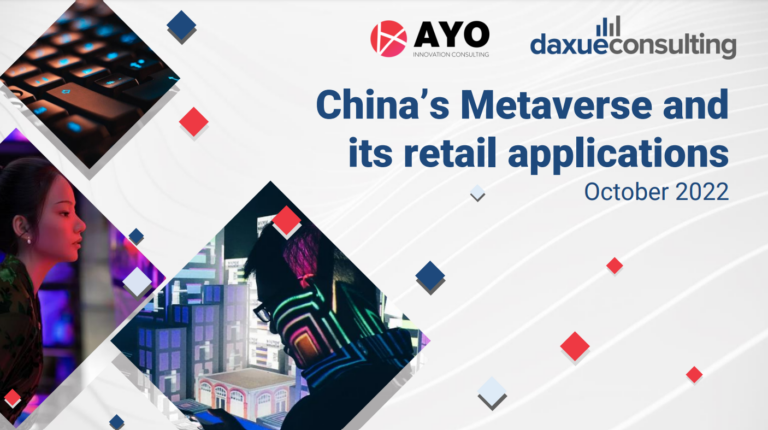Crypto currency lessons from China
In this episode of Daxue Talks Steve Hopkins, a China’s fintech specialist talks about the different crypto currency lessons from China.
Full transcript below:
Hi everyone, my name is Steve Hopkins. I’ve been operating within the Chinese fintech industry for the past several years, working at Chinese hedge funds, robo-advisors, crypto currency investment banks and wealth-tech start-ups across Mainland and Hong Kong. I’ve been studying Chinese language and culture for the past 10+ years and I’m the co-founder of The China Guys. TCG is a firm full of professional Chinese watchers that track regulatory, economic and policy optics within China’s business landscape and present them indigestible bite-sized pieces through newsletters and research articles. For clients with more specialized needs, we also provide tailored consultative services within the Chinese market. We’re newly started but I would love it if anyone listening to this would check us out at TheChinaGuys.com. I’m excited to be presenting this talk for Daxue Consulting and let’s get started.
Who is driving crypto currency innovation in China?
So again, this gets back to the question one of who is driving overall innovation. I think it’s pretty cyclical, starting from the government. The government is saying that we realize the power of blockchain technology and of course, crypto currency is one of the better-used cases of blockchain technology and they’re saying to these large corporations to the financial institutions within this entire financial system and saying, we want to develop it this way – you guys go ahead and make it happen, you have our support. And so, then this is opening a lot of liquidity, a lot of market opportunities for some of these smaller players, particularly the start-ups to come in and really test out a whole bunch of ideas. And then they also – filling in within this cycle they have the operational freedom and autonomy to really test out some of their more experimental used cases for blockchain technology for crypto currency. And so it all kind of goes around in a circle so I would say that the very top of this is probably the government, who is saying – we support this, go ahead make it happen and then all the players have pretty intermixed within that and their role of trying to derive crypto currency innovation within reach.
What have the US and other countries learned from China’s crypto currency development?
So, again everyone’s really learning from each other. I think that the US – at least the fintech players, they haven’t necessarily learned about new used cases from China necessarily – but I think on a broader level, global regulators have definitely learned from each other and so particularly China. China has been very interesting where they straight up ban – or actually in the very beginning, in 2013 I believe they came out and said that they were – stood very supportive of crypto currency. Thought that there were some very good used cases for it that could further the national priorities and then in 2017 they came out and said – ban on everything – crypto currency, ICO’s are dead in the water, crypto currency trading is in a very negative spot of these crypto exchanges that were operating within China, Binance – B-On they suddenly find themselves in a very tricky position and need to exit the market while still servicing their Chinese clientele.
But then what’s interesting is that at the same time, the Chinese government goes over to the PBOC and says – we think that crypto currency can be contrary to – at contrast with investor interest, but we still see the used case for this technology and wouldn’t it be a really cool idea if we were able to onboard some sort of electronic RMB sort of product that then allows our national currency to A) have better access to the global community, and B) give us a little bit more insight into where our money is actually flowing in and out. And so, because of that, you hear a little bit of news coming out about some recent head wave that the PBOC has made on developing this digital currency and how they are working with some of the bigger payment providers within the Chinese financial industry to start the integration process. Ask those questions. How is this going to work out and do you guys have the capabilities to sort of onboard this new type of payment system? How can we integrate everything etc., etc. – and so suddenly what you see is sort of a global response to this, because obviously no government wants to be left out of this kind of global innovation race, least of all the US who has a whole lot to lose if suddenly the renminbi has increased market access to the international financial community, the trade community, etc. and really in a very much real sense – could over the long term threaten the status of the US dollar as the global de-facto currency. And so, you hear US regulators maybe not talking to the Fed about coming up with their own digital dollar, but they started getting the conversations going about crypto currency. What are the benefits of this? What is this technology at its core? And then you also have the private corporations – like Facebook with their lever project who come up and say – look, the US government is having the right sorts of conversations, but we want to take this a step further and we want to actually start developing this US dollar-based digital currency and obviously someone like Facebook has the resources both fiscal and relationship-based to kind of take the approach to getting this project started. And so, I would say that getting back to the question, that it’s not necessarily that there are one or two specific lessons that the US and other countries have learned from China’s crypto currency development, but it’s kind of the broader top-down approach that Chinese regulators have towards crypto currency, towards mitigating the risks towards investors that crypto currency investments present, but still the long term development, strategic development of this technology – those are the sorts of lessons that I think the US at a governmental level are starting to take away from the Chinese approach to the technology.
Any questions? We will find an expert to answer them. Drop your questions in the comments or send us an email – dx@daxueconsulting.com.





